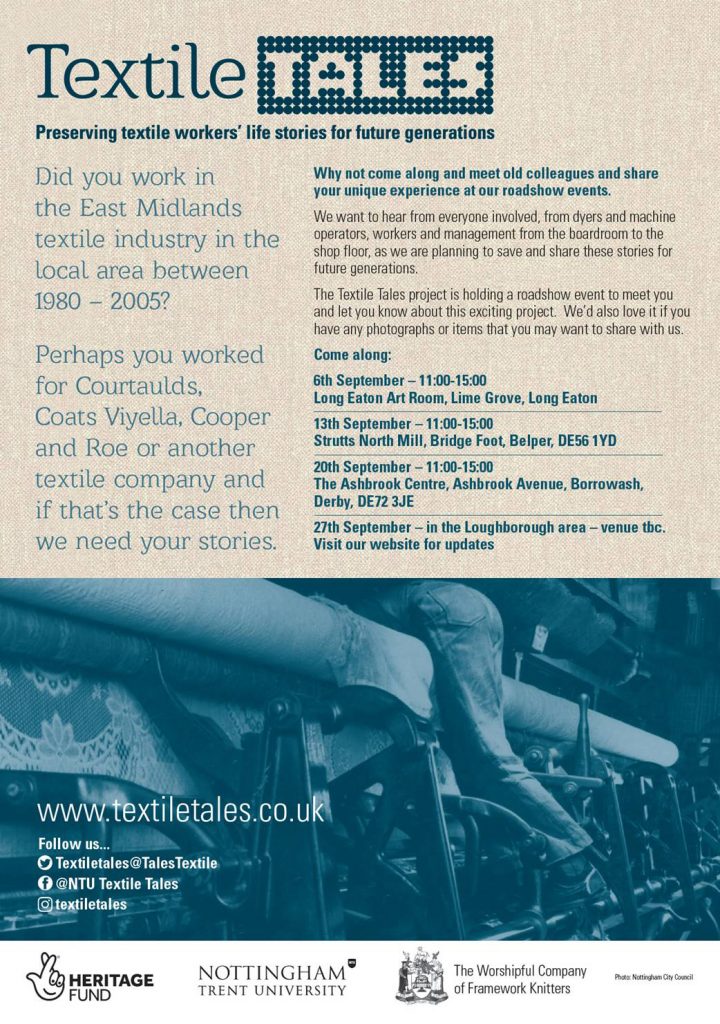Textiles Tales, an exciting project led by Nottingham Trent University supported by the National Lottery Heritage Fund
The Textile Tales Project led by Nottingham Trent University has received a National Lottery Heritage Fund grant of £70k for an exciting heritage project across the East Midlands. Made possible by money raised by National Lottery players, the project engages communities in the East Midlands – the historic heart of the UK’s textile industry.
With a group of four museums, two universities and businesses, Textile Tales will run a series of ‘road-shows’ to gather oral history interviews from former textile employees. The project wants to re-connect now dispersed groups of workers from the period 1980 – 2005 which saw turmoil as the industry rapidly contracted. We want to hear from everyone involved from dyers and machine operators, workers and management from the boardroom to the shop floor, who lived through this period as we are planning to save and share these stories for future generations.
There will be ‘road-show’ events across the region and our first event in our Textile Tales roadshow van will be on
Friday 6th September where we will be visiting Long Eaton between 11- 3pm. We will be parked in the car park at
Long Eaton Art Room Community Arts Centre, 29-31 Lime Grove, Long Eaton, Nottingham, NG10 4LD
For the rest of September we will be out and about in other textile communities and will be visiting :
- 13th September – 10:00-15:00 – Strutts North Mill, Bridge Foot, Belper, DE56 1YD
- 20th September – 10:00-15:00 – The Ashbrook Centre, Ashbrook Avenue, Borrowash, Derby, DE72 3JE
There will be other events too so visit our website textiletales.co.uk to see where we will be and to find out what happened at our roadshows.
Supported through The National Lottery Heritage Fund and by the Worshipful Company of Framework Knitters, the project will share all the insights from the textile stories collected through the new project website textiletales.co.uk. Future generations will be able to learn much from their heritage, including skills that are becoming scarce in the parts of the industry that still exist. In the 1980s these workers protested to save the industry – now their stories deserve to be shared.




